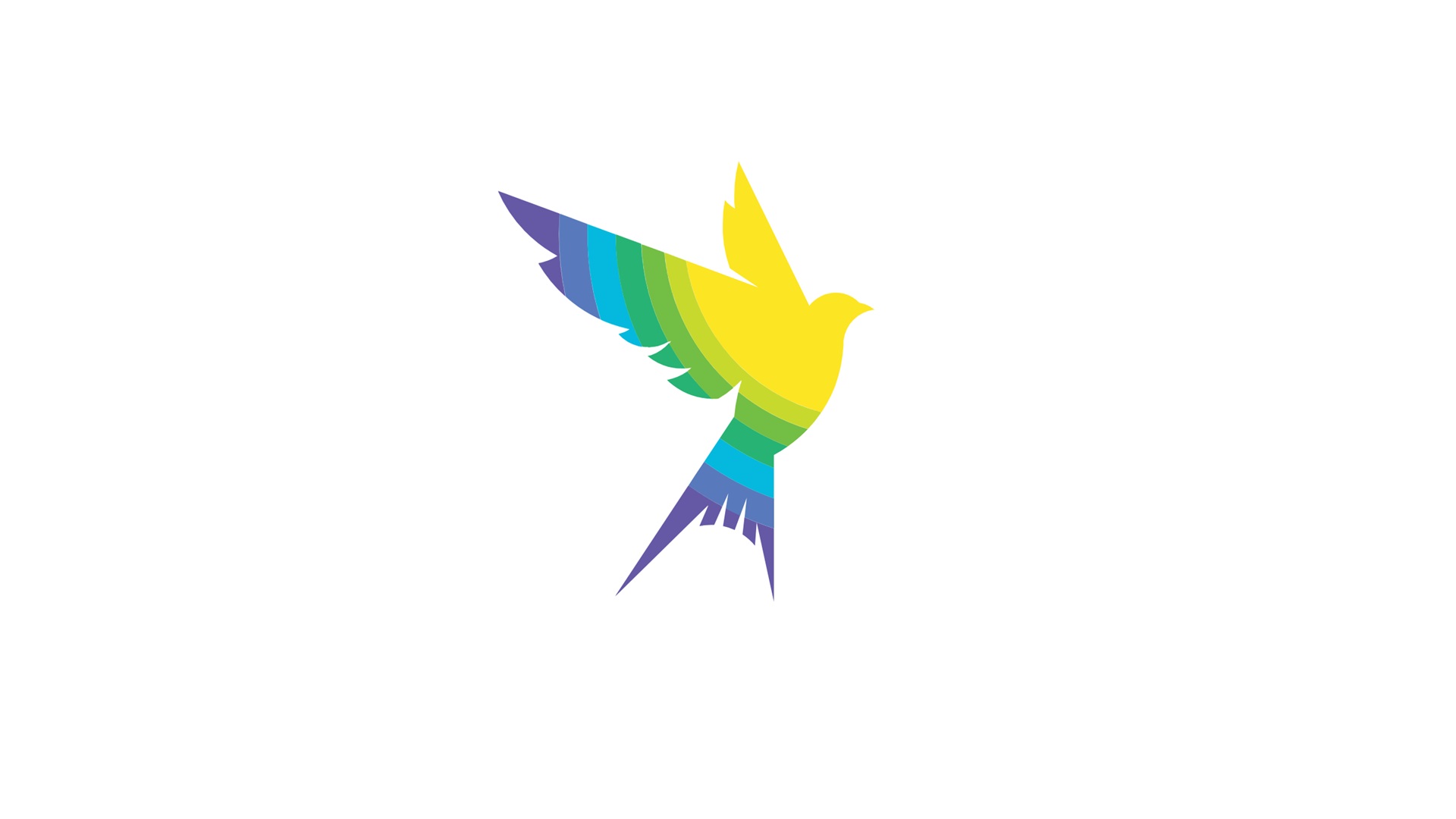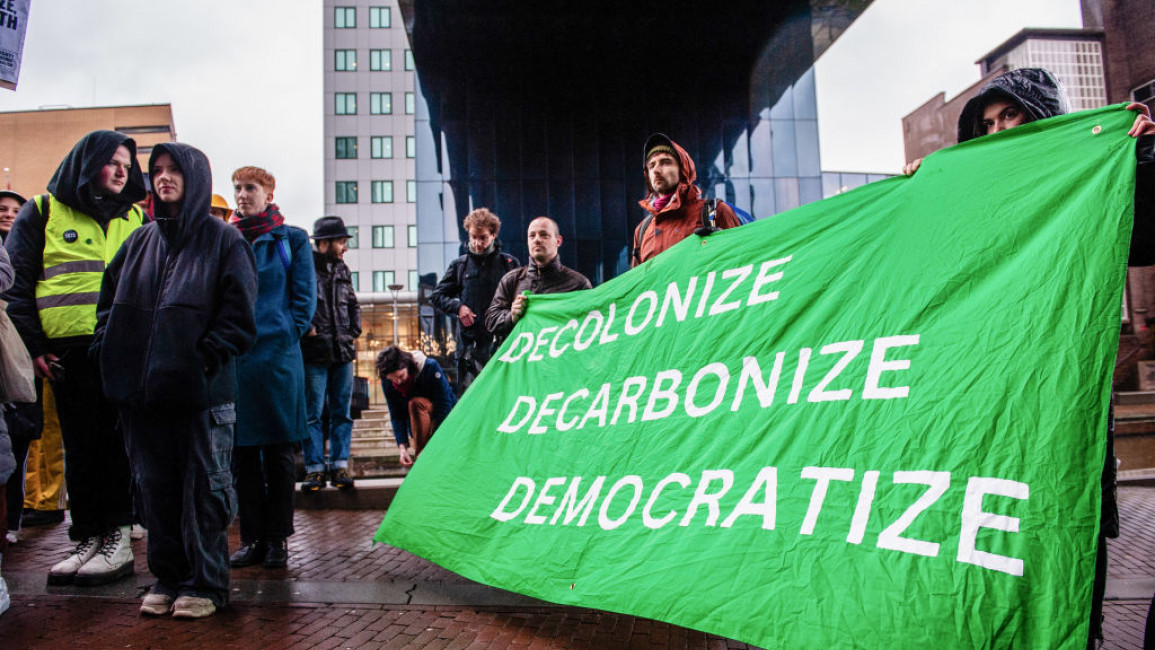
Resisting neoliberal greenwashing in Dutch universities
The 16 January marked Martin Luther King Day, a symbol of a radical life and legacy. It is perhaps significant therefore that it is on this day that the University of Amsterdam (UvA) decided to violently suppress student activists calling for the decolonisation, democratisation, and decarbonisation of the institution, choosing instead to perpetuate its neoliberal greenwashing of the fossil-fuel industry and colonial violence.
In 1963, from an Alabama jail where MLK was imprisoned for participating in nonviolent protest against racial segregation, he wrote that ‘injustice anywhere is a threat to justice everywhere. We are caught in an inescapable network of mutuality, tied in a single garment of destiny. Whatever affects one directly, affects all indirectly.’ It is this sentiment of intersectional, international resistance that most clearly embodies the ethos of the coalition which occupied the former Academic Club at the University of Amsterdam.
''Through the greenwashing of Shell’s crimes, the empowering of neoliberal “sustainable” development agendas, associations with settler colonial institutions, and violent repression of popular protest, the University of Amsterdam has revealed itself to be complicit in supporting settler colonial, capitalist, and environmental violence.''
The coalition, consisting of a number of student and autonomous collectives, including the University Rebellion UvA, Autonomous Student Struggle, Students for Justice in Palestine, The Decolonization Club, ROOD socialist youth organisation, End Fossil NL, Mokum Kraakt squatting collective, and the Activisten Partij UvA (Activist Party), made three demands to the University. They called on the institution to cut ties with Shell and other fossil-fuel companies, to be fully transparent about its relationship to the fossil-fuel industry, and provide an autonomous space, independent from university bureaucracy, for students, staff, and the public to collectively organise and engage with decolonisation, democratisation, and decarbonisation within and outside the academic space.
In an email sent to students and staff on 17 January, the executive board stated that they entered a ‘constructive conversation’ with the student activists shortly after the occupation. However, instead of dialogue, the board refused to accommodate the demands and ordered the activists to vacate the property or risk having the police called on them.
What followed was a repression of peaceful protest by squads of riot police, defying the right to protest. This resulted in 30 arrests and the use of physical violence against protestors.
In an effort to absolve themselves, the university stated that eviction would be decided by the police, the mayor of Amsterdam, and the district attorney. In doing so however, the university let its mask slip, revealing its weaponisation of state violence against its own students to maintain “normal” functioning of the institution.
So much for academic independence.
The direct action follows a wave of occupations and protests in several universities in the Netherlands and across Europe which have called for a severance of ties with the fossil-fuel industry. In some cases there were even victories. Recently in Eindhoven, for example, officials at the University of Technology engaged with activists who occupied the executive board’s meeting rooms and agreed to declare a climate emergency. They also committed to providing further transparency on industry funding, and more closely monitoring cooperation with the fossil fuel industry.
However, at the Erasmus University in Rotterdam, instigated by a report from the executive board, the police forcibly removed student activists from university premises.
The executives of UvA were therefore fully aware of the consequences of utilising state authorities, but still willing employed it against its students.
This usage of state power is symptomatic of a neoliberal democracy which functions as a vehicle to maintain the conditions for capitalist production. To quote Italian Marxist Antonio Gramsci, ‘In short, "democracy" organised fascism when it felt it could no longer resist the pressure of the working class in conditions even of only formal freedom.’
It is clear from the actions of the executive board of UvA, that repression is continually organised within neoliberal institutions in the Netherlands.
Earlier in December 2022, in response to a petition launched by University Rebellion UvA, and demonstrations at various universities across the Netherlands, UvA revealed that it collaborates on four projects with Shell. The board, however, maintains that these projects comply with the university’s agenda to promote sustainable futures, despite 90% of Shell’s total investments going towards fossil-fuels as of 2022.
This approach to research is not limited to UvA. Allocation of Dutch and European research funds, especially for climate and sustainability, emphasise technological innovation, patent and other intellectual property registrations over investigations into the political and economic causes of crises. This neoliberal approach empowers the market and corporations (including fossil-fuel companies) over civil society, as architects and saviours of our future.
Furthermore, early last year UvA failed to comply fully with a freedom of information request lodged by The Rights Forum into links between universities in the Netherlands, and Israeli state institutions as well as pro-Israel organisations.
The university only provided information on two academic agreements made in 2019 and 2021. One of the agreements they have is with the Hebrew University of Jerusalem, an institution with a campus built on illegally occupied land in East Jerusalem. According to Academia for Equality, this campus has been used as a police staging ground to terrorise Palestinian villages.
East Jerusalem is also illegally subjected to prohibitive planning regulations by the occupation municipality. Ostensibly targeted as natural and cultural heritage protection, and tourist development, these regulations weaponise conservation to inhibit Palestinian self-determination, facilitate home demolitions and escalate displacement.
Through the greenwashing of Shell’s crimes, the empowering of neoliberal “sustainable” development agendas, associations with settler colonial institutions, and violent repression of popular protest, the University of Amsterdam has revealed itself to be complicit in supporting settler colonial, capitalist, and environmental violence.
To be clear, this complicity is nothing new. The development of Western universities is deeply implicated in European colonialism. From the reliance of Western knowledge production for the inferiorisation of the ‘other’, to the imposition of Western knowledge systems across the globalised South, universities have been central in creating the conditions for environmental disaster and placing economic and political power in the Global North.
The struggle for decolonised, decarbonised, and democratised spaces of learning therefore, must continue. Those leading the fight will not be bullied into submission by any of the violence meted out against them.
Taariq Ali Sheik is a South African decolonial learner and organiser currently based in the Netherlands where he pursues a PhD in archaeology at the Vrije Universiteit Amsterdam.
Follow him on Twitter: @StudentenIn
Have questions or comments? Email us at: editorial-english@newarab.com
Opinions expressed in this article remain those of the author and do not necessarily represent those of The New Arab, its editorial board or staff.


![President Pezeshkian has denounced Israel's attacks on Lebanon [Getty]](/sites/default/files/styles/image_684x385/public/2173482924.jpeg?h=a5f2f23a&itok=q3evVtko)



 Follow the Middle East's top stories in English at The New Arab on Google News
Follow the Middle East's top stories in English at The New Arab on Google News


